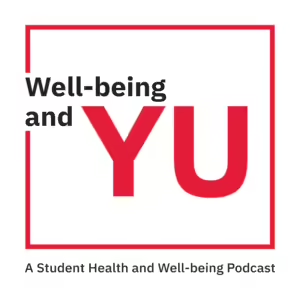What is Financial Well-being?
Financial wellbeing is about your personal relationship with money and how it impacts your life. If wellbeing is the state of being healthy and happy then ‘financial wellbeing’ is the state of feeling this way when it comes to your money. It is a holistic concept that encompasses all elements of how you manage your finances such as your level of financial literacy, your income, and how much debt you have.
It is important to remember that everyone has their own personal journey with money, and this journey will not always be linear. Whether you’re dealing with debt, saving for a goal, navigating a life event, or even starting a business, the RBC My Money Matters site is designed to help guide you, no matter your situation.
Our hope is that we can help make conversations about money easier and less stressful by providing you with the content, tools, and resources you need to build confidence and act towards your wellbeing.
A closer look at financial wellbeing
Financial wellbeing is about having enough money to meet your needs today, with enough left over to reach your goals for the future. People who experience financial wellness are less stressed about money, which can lead to improved sleep, more energy, stronger relationships and better overall mental and emotional health. So how can you take the right steps towards becoming more financially well? One way is to look deeper into the four aspects of how you approach money: how you spend, save, borrow, and plan.
Spend
When it comes to spending, the equation is simple – in theory – but not always easy to execute in the real world. That is, Spend less than you earn.
Smart spending is a crucial part of financial wellness. But in tough economic times — or during an upheaval in your personal life — this can be a real struggle. Understanding your spending patterns, your emotional triggers, and your financial obligations can help you manage where your money is going better.
Save
Saving provides psychological security and can help boost your overall sense of wellbeing. For example, having enough savings to cover unexpected expenses and pivot during emergencies means less strain on your finances — and your mental health. Saving long-term can help you reach goals that are important to you.
Saving doesn’t have to be difficult, but it’s a habit that doesn’t always come naturally. On the Goals and Aspirations section of My Money Matters, you can learn ways to simplify saving, so it becomes almost second nature.
Borrow
Debt is the leading cause of financial stress among Canadians. Knowing how to keep debt manageable may ease financial pressure and allow you to enjoy life more. It’s important to know that when it comes to debt, you’re not alone, and there are ways to manage it.
Smart borrowing may also lead to a stronger credit score and being able to qualify for loans to help purchase a home, car, vacation property or business.
Plan
While studies show Canadians with a formal financial plan save more and are more likely to reach their goals, even informal planning can help. Knowing what you want your money to do for you can keep you focused and on track. Having a plan is not just about saving money, it is also about protecting your money for your future and those you care about through insurance, wills, and other tools.
We all deserve a healthy relationship with money and financial wellbeing.



